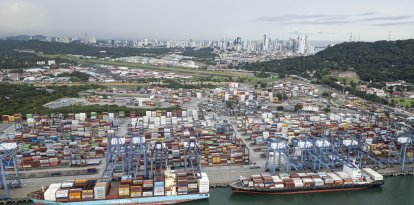Haiti: Relentless violence triggers deadliest quarter since 2022
Between January and March, the United Nations reported that 2,500 people were killed or injured in gang attacks.

(AFP)
In recent months, gang members have escalated their criminal activities and attacks against authorities, citizens and infrastructure, especially in the country's capital, Port-au-Prince. This surge in violence has led Haiti to experience its deadliest quarter since January 2022.
According to a statement issued by the United Nations Integrated Office in Haiti (BINUH), around 2,500 citizens were killed or injured by gang violence. This was a 53% increase from January and March 2024 compared to the data recorded from October to December 2023.
"Some of the worst scenarios for Haiti have become realities in recent months and weeks. The severity of the current crisis underscores the gaps in capacity within the national structures and the urgent need for international assistance, namely through the immediate deployment of the Multinational Security Support Mission," said Maria Isabel Salvador, head of BINUH, alluding that gang members have targeted different essential infrastructures in Port-au-Prince and the rest of the country such as police stations, prisons, schools, hospitals and religious sites.
A step towards a transition in the government
The spiral of violence has led to the creation of a Presidential Transitional Council, with the objective that all Haitian political parties find the appropriate government formula to end the crisis. Former Prime Minister of Haiti Ariel Henry agreed to resign in March.
In a press release, António Guterres, Secretary General of the United Nations (UN), congratulated the parties for their willingness to reach an agreement and seek a solution to put an end to the violence in the country:
The U.S. representative to the U.N. took the same stance, stating that the creation of a Transitional Presidential Council is "a much-needed ray of hope" for Haiti.

























